19th September 2023
As part of our education in emergencies (EiE) series, we shine the spotlight on our work that we undertake around the world. Together with Save the Children International and partners, we work to help uphold the universal right for children to access good quality education.
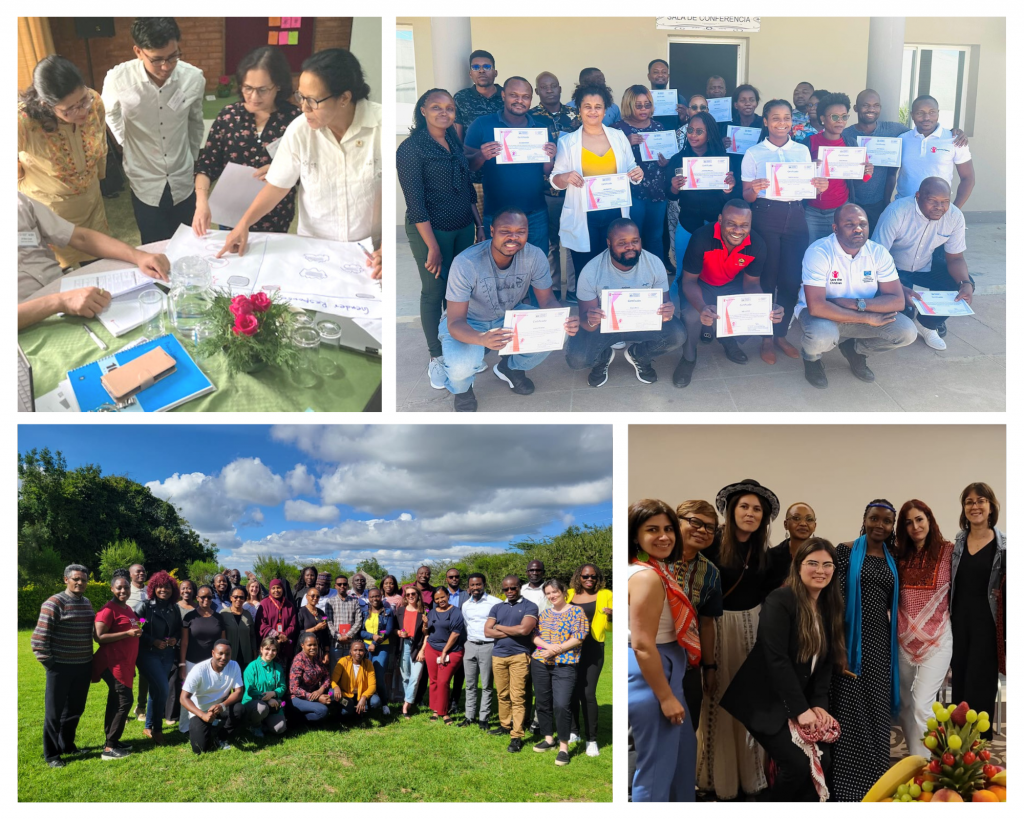
Our EiE Professional Development Programme forms a core part of the HLA’s Technical Expertise Pillar work where we prioritise local and national organisations to ensure that all those affected by emergencies are included and equally participate in and benefit from humanitarian action.
Ka Man Parkinson (HLA Communications Advisor) caught up with Casey Pearson, the HLA’s EiE Learning Specialist, to learn more about the work that has taken place so far in 2023 and a look ahead to upcoming developments.
Could you give an overview of what has been achieved so far this year?
This year has been an extraordinarily busy year for HLA/Save the Children International’s EiE Professional Development Programme (EiE PDP)!
We have expanded from running in two core regions – East and Southern Africa (ESA) and the Middle East and Eastern Europe (MEEE) – to increase our reach to cover two more regions: Asia and most recently West and Central Africa (WCA).
The EiE Regional Managers are the driving force behind the many capacity sharing and training opportunities which we provide within the EiE PDP.
Since its launch in 2015, the EiE PDP has been supporting in-country EiE and education practitioners from all organisations – including UN, INGOs, local and national organisations and governments – to develop a core set of technical competencies relevant across the sector through delivering a series of connected blended EiE courses.
The EiE PDP aims to strengthen the capacity of EiE stakeholders to deliver quality timely and adapted education in emergencies programmes in humanitarian settings.
Engaging and bringing together learners from a range of organisations involved in the EiE ecosystem not only helps create a community of practice which endures after their direct engagement in the programme, but also promotes intra-sector collaboration and response coherence.
With a minimum of 50 percent of facilitated course spaces targeting local and national organisations and government, this programme aims to improve national and regional EiE skills to promote more localised responses.
To meet the learning and professional development needs of different EiE practitioners working in different capacities and levels of the system, and in different locations, the EiE PDP has developed and delivered a series of interconnected EiE professional development products which also link to the INEE (inter-agency) Competency Framework. These range from self-directed online courses, face-to-face facilitated courses to blended 450-hour EiE Certificate of Advanced Studies (CAS) accredited by the University of Geneva.
Would you like to share any milestones or notable achievements from this year?
Milestone 1: successful EiE CAS residential training
In both the ESA and MEEE regions, 49 participants came together from across the respective regions to participate in residential training sessions as part of the EiE Certificate of Advanced Studies (CAS) – 24 in Jordan and 25 in Kenya.
Kenya
Casey and fellow facilitators at the EiE CAS Residential in Kenya (ESA Region), May 2023.
Read more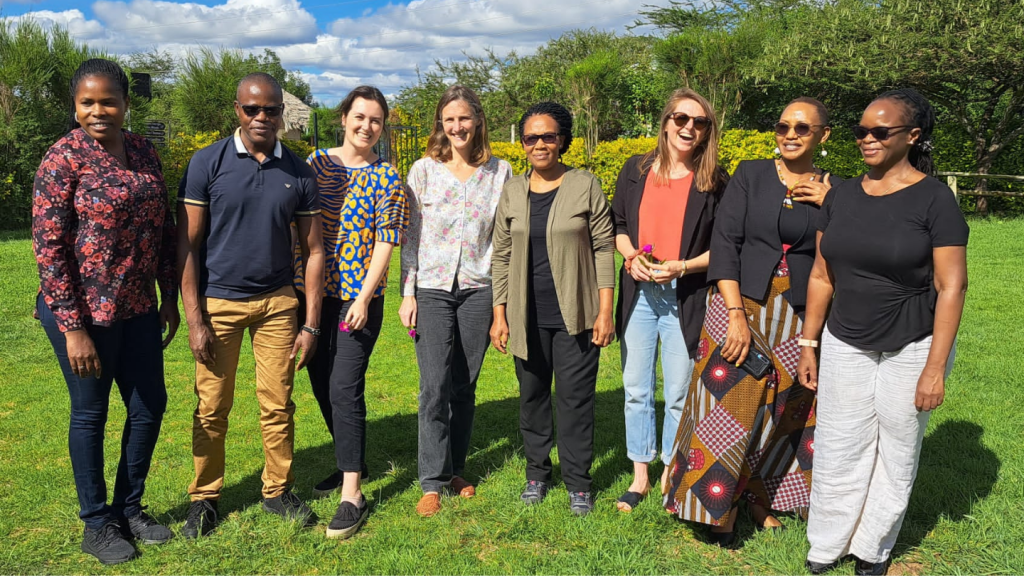
The EiE CAS is a sector-facing course targeting mid/senior level EiE and education practitioners working and based in emergency-affected or prone regions.
Participants spend the majority of the residential participating in an EiE simulation where they apply the learning gained across the six modules of the CAS to a range of scenarios in the fictional land of Galania.
An EiE CAS residential training participant from Ethiopia said:
“It was amazing…we gained substantial skills and knowledge that will contribute massive inputs to our professional development. Personally, I learned a lot from the session and interactions I had with my colleagues from East, West, and South Africa. I was impressed by the smile and sympathy of the entire team. They were spectacular and inspiring days that will remain in my heart and mind forever.”
An EiE CAS residential training participant from Jordan said:
“As someone who is passionate about promoting access to quality education in crisis situations, I found the course to be challenging and rewarding. I’ve learned a lot and I’m excited to take what I’ve learned and apply it in my work and daily life. Let’s continue to advocate for access to education during emergencies so that everyone, no matter where they are in the world or what crises they’re facing, can have the opportunity to learn and grow.”
These students are now in the final module of their course where they are designing and delivering context-specific training utilising the newly gained knowledge and skills whilst continuing to provide professional development opportunities for others.
The simulation is full-on and pretty intense, but the participants really bond with each other and learn with and from each other in ways which are much more difficult to achieve using more traditional training methodologies.
Jordan
Celebrating the successful completion of the EiE CAS residential in Jordan (MEEE Region), June 2023.
Read more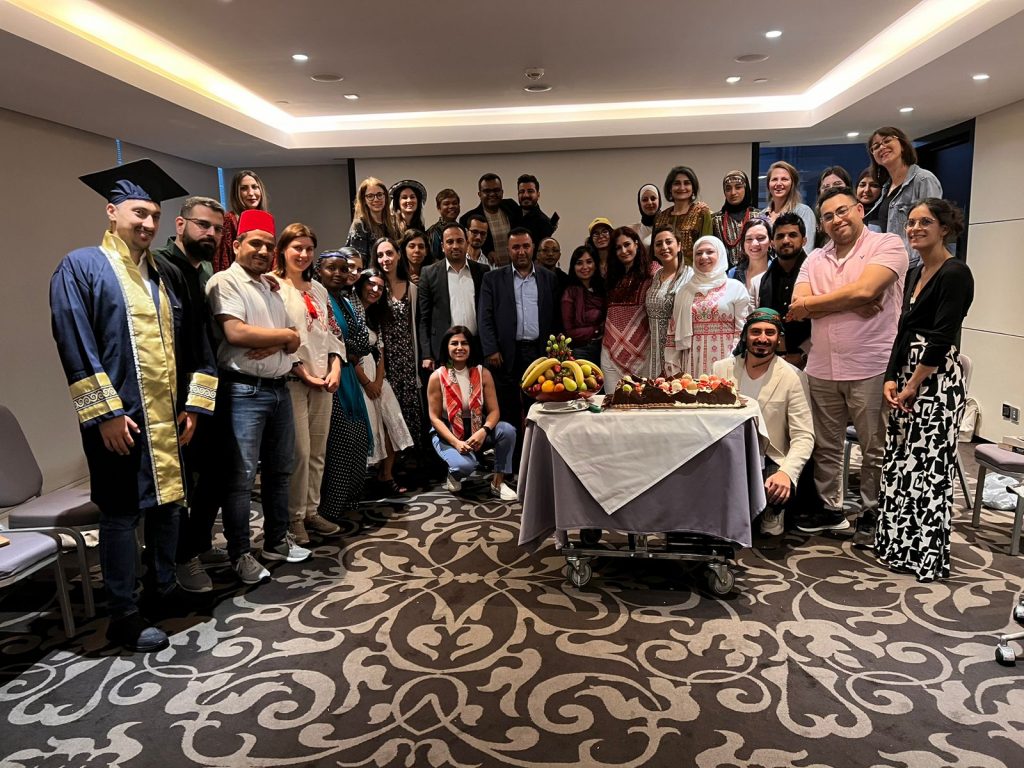
Milestone 2: the launch of EiE Fundamentals in Nepal
Another huge achievement was seeing the EiE Fundamentals launch in Nepal earlier this year, as this is a new region for the programme to be expanding in and we are so happy to have Efren Lubuguin in post as Regional Manager to grow the programme there – you can hear Efren talk about his work in the region in this recent EiE podcast episode he recorded for the HLA.
The training included staff from Save the Children Nepal, local partners, INGOs as well as government officials. By the end of the week-long training, participants developed an action plan to localise the EiE Fundamentals course and to promote EiE across the provincial and local levels of the Education Cluster in Nepal.
We are also launching the EiE CAS programme for Asia this year – so lots of exciting professional development opportunities on the horizon for EiE practitioners across the region!
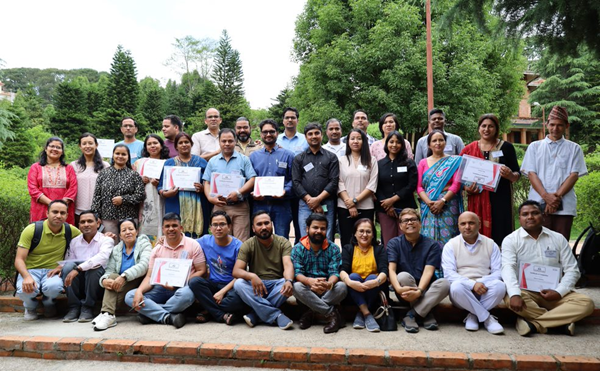
Milestone 3: our workshop with the Education Cluster in Ukraine
The two-day Reflection and Learning workshop held in collaboration with Save the Children Ukraine and the Ukraine Education Cluster was definitely another key milestone.
Ukraine
Representatives of the Education Cluster in Ukraine gathered in Kyiv to discuss the foundational concepts and standards of EiE, August 2023.
Read more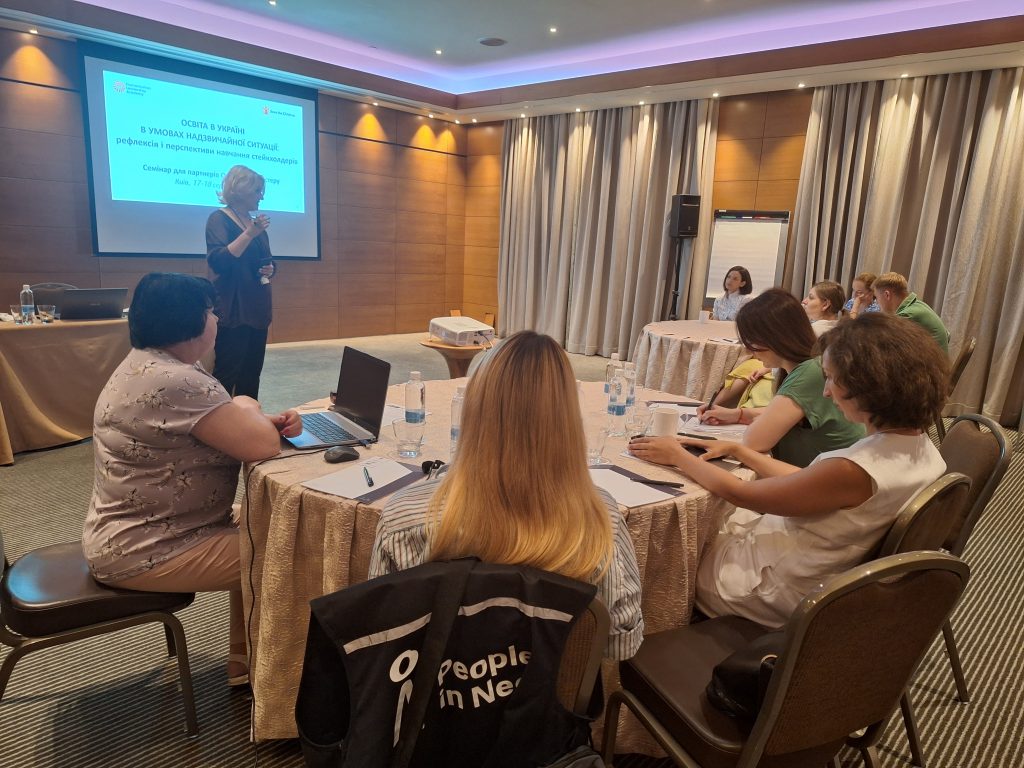
The workshop provided a safe learning space to share experiences and challenges, identify areas of learning, and celebrate successes. The effect of the armed conflict on the education system has a long-lasting effect on society, so it needs to be addressed holistically and comprehensively.
This workshop is the start of a three-month programme of creating a community of practice around EiE best practices and challenges in Ukraine. Through reflection on their everyday work in overcoming barriers in education, Education Cluster members aim to contextualise international knowledge accumulated around EiE and spread it further as trainers.
Even though part of the session was conducted in a basement due to the air raid siren, Education Cluster members found the opportunity to participate valuable and took it positively.
Margaryta Rymarenko, Save the Children Ukraine, Ukraine Education Cluster Coordinator said:
“In cooperation with HLA, we managed to create a blended learning programme that combines an online course on Kaya with face-to-face sessions, facilitated by local experts. This allows us to critically reflect on both the course content and our up-to-day practice to create a new iteration of the course, which is perfectly adapted for the situation on the ground.”
Milestone 4: launch of new online courses
Alongside our in-person workshops and training sessions, online self-directed learning also plays a huge part of the professional development programme. We have a growing catalogue of online courses for EiE in the HLA’s digital learning platform Kaya. The HLA Digital Learning team has done an incredible job in building new courses which we have been able to release this year.
Cash and Voucher Assistance (CVA) is a growing approach in the sector so being able to develop and launch a new CVA course was a big achievement!
We have also released online courses in Mental Health and Psychosocial Support (MHPSS) in EiE and Safeguarding in EiE and are excited to almost have EiE Foundational Concepts and Frameworks course available in Ukrainian, meaning this will be available in five languages alongside English, French, Arabic and Spanish!
What kind of planning and coordination together with Regional Centres and partners does this take behind the scenes to bring this work to fruition?
The Regional Programme Managers for EiE PDP really take the lead in prioritising country and capacity needs within their regions. They liaise very closely with Save the Children International’s Technical Advisors and Education Clusters or working groups already established within countries. These are the entry points to understanding the professional development needs within a response and to reach the relevant potential participants.
Translation and language needs are also very much at the forefront of the planning stages ensuring that both materials and facilitation meet the needs of the participants.
We also rely heavily on our incredibly supportive training and course alumni. We regularly engage with students who have participated in our trainings to organise, develop and often deliver training sessions. They are fundamental in creating a global community of EiE professional development which will only enhance outcomes for children and young people experiencing education in a crisis.
Although we are based across the globe, I – as the HLA Learning Specialist – and EiE Regional Managers work very closely together. This is to provide technical support and share experiences across regions, but also to gather evidence and data on the EiE PDP from a global perspective exploring its reach, impact and continuously-evolving needs.
Creating a sense of team whilst being so dispersed really makes you feel supported in your work. We have lots of cross-region support where we help each other out, for example we might facilitate a specific online session in a region which is different to where we are based, and we all come together to help run the simulations as they require a lot of human power to do the facilitation, grading, and the general organisation of it!
What emerging themes/priorities can you see in terms of professional development needs for educators/EiE practitioners?
The core competencies outlined in the INEE EiE competency framework continue to underline the key areas and stages of professional development for an EiE practitioner, but there are constantly growing areas and topics to be further explored.
Although the learning areas of gender, disability, language and inclusion in general have developed a lot over recent years, this is still an area which is critical for practitioners to continue to update their skills and practices in – as is MHPSS and wellbeing for children, teachers and staff in a crisis. This is because we still have a lot to learn about how to maximise inclusion and wellbeing in EiE and stay up to date as new knowledge, terminology and understanding is gained globally in these areas.
Climate change education, preparedness and anticipatory action, schools under attack and Cash and Voucher programming are all areas which are relatively new in the EiE sphere and topics which are thus also emerging as areas for development.
What’s coming up next?
We will be launching the EiE CAS programme in three regions this year, and we also have a range of EiE Fundamentals training sessions planned as well as the launch of Inclusive EiE and Child Participation online courses. We are looking forward to these next steps.
Thank you for sharing these reflections and behind the scenes insights with us, Casey! Thank you to you and the EiE team for your work and we wish you all the best for the next phase of activity.
About Casey Pearson
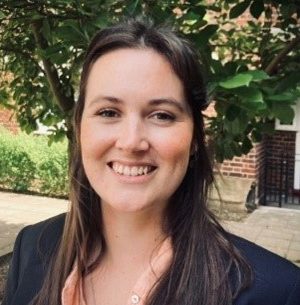
Casey holds 10 years’ experience in education and professional development across national and international contexts. She is a qualified teacher with a first class honours degree in Education, and a distinction in MSc Humanitarianism, Aid and Conflict. Since starting her career as a teacher in the UK, Casey transitioned into Education in Emergencies (EiE) and has worked for a range of NGOs in a range of contexts.
Casey says: “I am passionate about evidence-driven learning and have also conducted and presented my own research focused on teacher training and child protection in emergencies in Sub Saharan Africa. Most recently I returned from Bangladesh where I worked as an Education Officer and unit manager with UNHCR on the Rohingya refugee response.”
Acknowledgments
This EiE work is made possible thanks to the financial support from the People’s Postcode Lottery Education Trust, Save the Children Norway/Ministry of National Foreign Affairs, and the Disasters Emergency Committee (DEC).

